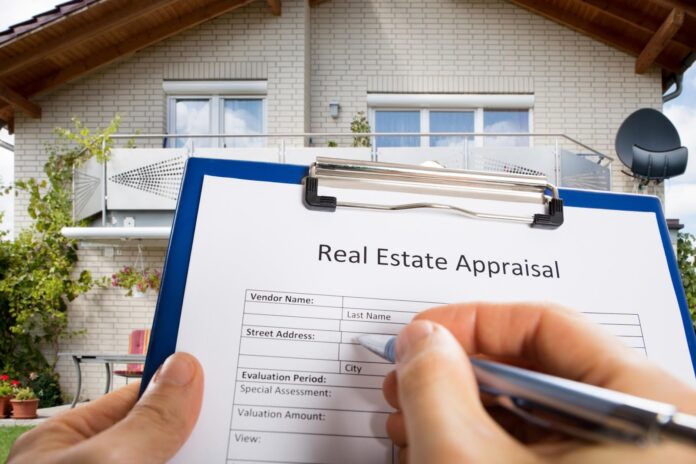Across the country, real estate values vary so widely that only about 47% of prices are actually sustainable. Most prices are valued to such a range that they’re more likely to be susceptible to a housing bubble than others. If you don’t know how homes are valued, you need to learn more about what is an appraisal before you buy or sell a property.
Here’s everything you need to know about appraisals.
Understanding Appraisals
When trying to figure out how much a home is worth, an appraiser is brought in. For home sellers, an appraisal can help to prove that the worth has gone up and to ensure that a profit is made on the property. For home buyers, an appraisal allows you to be sure there aren’t any major underlying issues when considering looking at a home.
It also lets both parties know, in an unbiased way, how much the property could be worth. What people choose to pay or sell it for are completely different issues.
Mortgage lenders who are helping buyers to get a home want the homes they’re potentially funding to be appraised. This can assure them that if they’re lending $100,000 on a home and the buyer defaults on the loan, they’re not going to be left with a property that’s worth half.
Appraisals will consider recent regional sales info and what similar properties are being sold for. The neighborhood and it quality of life will help to contribute to how much the home is worth.
Finding a Trustworthy Appraiser
Thankfully, most appraisers have no real relationships to either part in a transaction. That means that when you bring in one of these highly-trained professionals, their licenses and certifications can be trusted. They’re avowed to appraise homes fairly and objectively without considering any other parties.
Every appraiser is capable of making mistakes and the way that a home is valued is likely to be based on the opinion of the appraiser. However, they need to go through rigorous training and pass multiple tests to be certified. After years of working in the field, they’ll have worked out many of the kinks to their job.
They’re also required to take continuing education courses. Appraisers and the companies who employ them are often highly regulated. If they deliberately mislead or offer biased reports, they can lose their certification.
Ask about certifications and licenses in advance if you want to ensure you’re working with the most reputable professional around.
Know What They Look For
Appraisers aren’t going to value a home based on the color, the doorknobs, or the type of toilet you have. They’re going to think about the permanent components of the house. Anything attached to your house is going to be a factor.
While a home should be clean and tidy before an appraiser visits, they don’t care about your decor or furniture. They’re going to look at the physical characteristics of the home. The most important elements are the age, the square footage, and the number of bathrooms.
Consider the location, view, as well as the foundation and roof. All of these elements make a big impact on how the home will be valued.
Looking to Bring the Value Up?
If you’re selling a home, you have options for bringing the value of the property up. There are a number of small changes you can make that can cause the value to jump by quite a lot.
If there are cracks and stains on your wall, fix those ASAP. Get rid of any lingering scents. Pests can cause your home’s value to drop considerably, so take care of these issues before anyone comes to look at it.
Home values are made in $500 increments, so if you can make repairs that are under that amount, do them. You don’t want to be dinged $500 for a leaky faucet, a broken window, or a power outlet that needs to be tightened.
Look at how your home appears from the curb. Curb appeal is important when it comes to buying a home. Your lawn, landscaping, garage, and the overall feeling of your home compared to your neighbors.
Appraisers sometimes look at the overall neighborhood. If you’re battling against a neighborhood-wide drop in value, you want to do everything you can to combat it.
Make sure your overall fixtures look current and modern and you could end up with a home that’s valued higher than you anticipated.
Fighting the Appraisal
Your appraiser isn’t going to just give you a number and walk away. They’ll leave you with a report and supporting documents that let you know why they came to the conclusion that they did.
Lenders review appraisals through a system of checks and balances so don’t expect them to have made arbitrary decisions. They’ll have information about all the known sales in your region and offer you a comprehensive review.
If you see discrepancies, don’t be afraid to point them out. You can always hire a second appraiser to take a look at your home if you think that there are major inaccuracies.
However, consider making small repairs if possible between the two appraisals.
To understand the variations between a commercial and residential appraisal, check out this guide for more information.
Still Curious What is an Appraisal?
If you’re still unclear as to what is an appraisal and how it can help you, consider looking at the details of your home. Those elements of your home that are permanently fixed to the property or the structure make a serious impact on what you can buy or sell a home for.
If you want more information and insight on real estate, bookmark our site to stay abreast of changes.





















